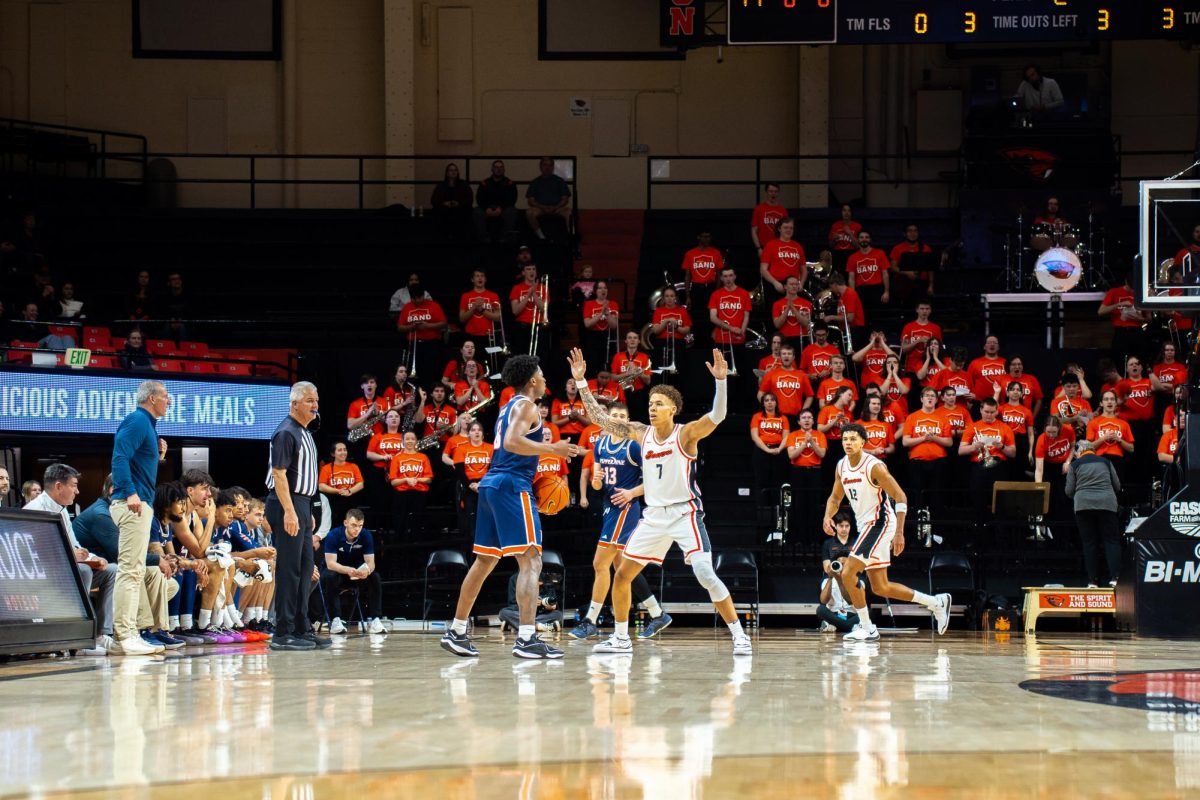Editor’s note: This story has been updated to provide more context.
The Associated Students of Oregon State University are throwing out their judicial branch, which reviews laws passed by ASOSU Senate, according to a statement on ASOSU’s Instagram page Friday.
The statement also calls on the Board of Trustees to help restabilize ASOSU due to a small group trying to push an agenda.
Whether or not the ASOSU statement is accurate has not yet been verified. The Barometer is working to verify these claims.
In the statement, ASOSU President Audrey Schlotter claimed the senate had voted to “dissolve” the judicial branch. According to Sophia Nowers, Student Fee Committee chair, ASOSU leadership has been in contact with OSU’s lawyers and is working with them on how to proceed.
Whether the branch will officially be dissolved and what this means is unclear as of now.
The ASOSU Judicial Branch is the third branch of government with the others being ASOSU Executive Branch, ASOSU Senate and SFC.
According to the ASOSU website, the goal of the ASOSU Judicial Branch is to advise groups and organizations within the government, resolve disputes between parties and issue advisories, injunctions or binding decisions.
The judicial council reviews the ASOSU Constitution and Statues to make sure that all legislation passed by the senate is within those legal parameters.
“The ASOSU Senate has chosen to ignore this precedent and strip away powers from two of the four bodies within ASOSU, silencing the authority of judicial review and the voice of elected SFC members,” Schlotter said in a statement on the ASOSU Instagram.
The statement was also signed by Judicial Council Chair Madison Jones, ASOSU Vice President and President of the ASOSU Senate Zach Kowash and Student Fee Committee Chair Sophia Nowers.
“At this moment in time, we believe the university’s shared governance structure is in trouble,” Schlotter said in the statement. “Our checks and balance systems bolster integrity in the fee recommendation we bring before you every year. I cannot with the same confidence say that there will be the same level of integrity in the year’s fee recommendation.”
Schlotter also addressed the potential of online attacks in the form of harassment and bullying, which she noted happens often. She mentioned examples including alleged death threats to past ASOSU President Carissa O’Donnell, cancellations of senate meetings due to anonymous threats, harassment of ASOSU members and the weaponization of marginalized communities.
The Barometer will provide updates as they are available.
If you’d like to comment further on this issue, please email [email protected].













































































































